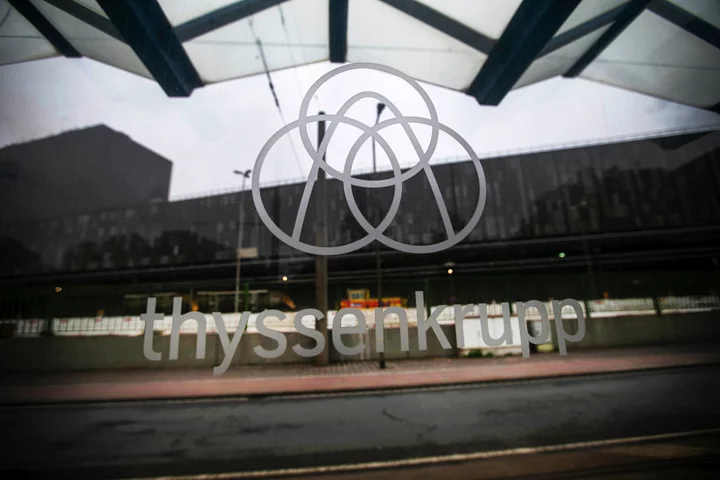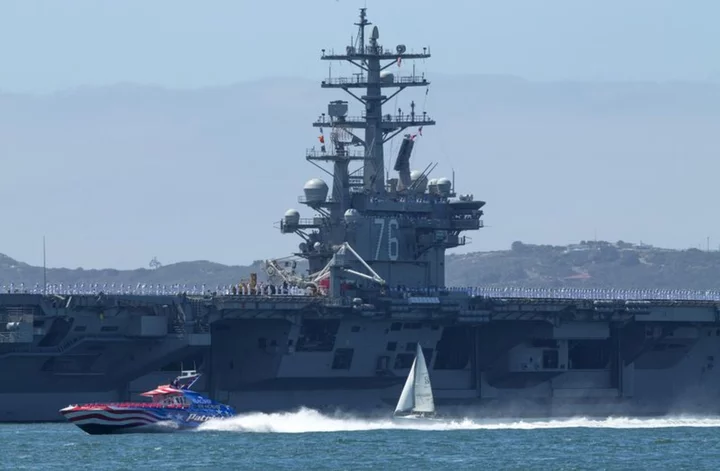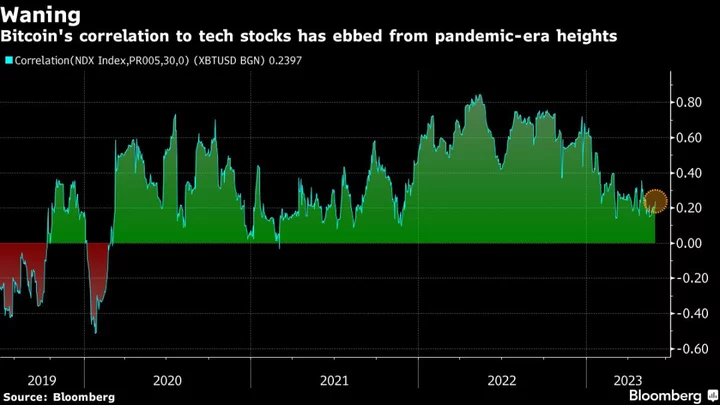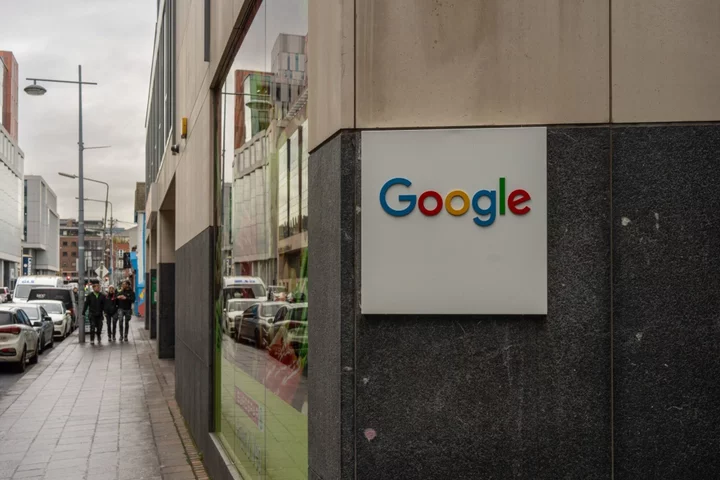Thyssenkrupp AG secured European Union approval for a €2 billion ($2.2 billion) package in state subsidies from the German government to invest in green steel production.
The package comprises €550 million in direct grants and a conditional payment of as much as €1.45 billion, to be used to support ThyssenKrupp’s bid to decarbonize its steel production and accelerate renewable hydrogen uptake, the European Commission said Thursday.
The German industrial company plans to produce climate-friendly steel at its site in Duisburg by the end of 2026.
A statement from the EU’s competition commissioner Margrethe Vestager said that Germany’s antitrust watchdog could “closely monitor” any potential distortions to the market that would arise as a result of the subsidy plan.
Read More: Germany Fights to Green Production of Most Important Commodity
Germany and the European Commission reached an agreement over the subsidy package for Thyssenkrupp in June. The funding includes €700 million from the state government of North Rhine-Westphalia and around €1.3 billion from the federal government.
Green steel production typically uses hydrogen to purify iron ore pellets and then melts the metal with other minerals to create steel in electric-powered furnaces. The technique replaces coal-powered blast furnaces, which can spew out more than a ton of carbon emissions for each ton of steel.
Separately, the EU approved on Thursday €850 million aid in France to support ArcelorMittal‘s steel decarbonisation plans.
--With assistance from Samuel Stolton.









